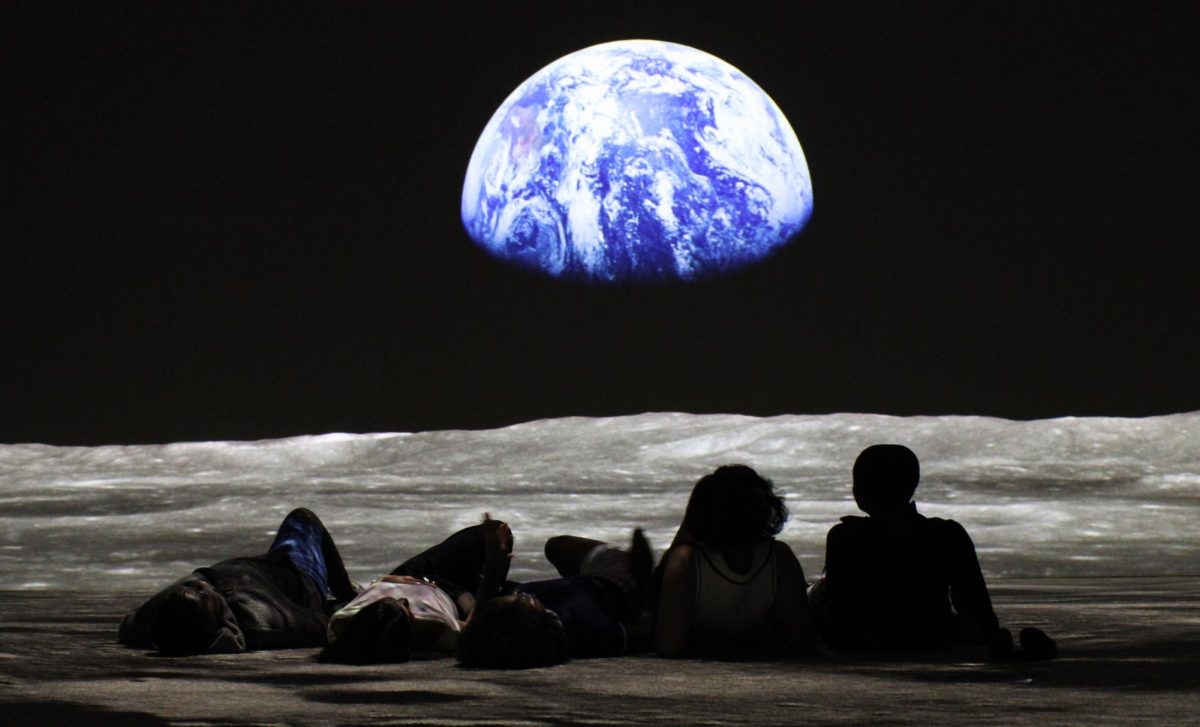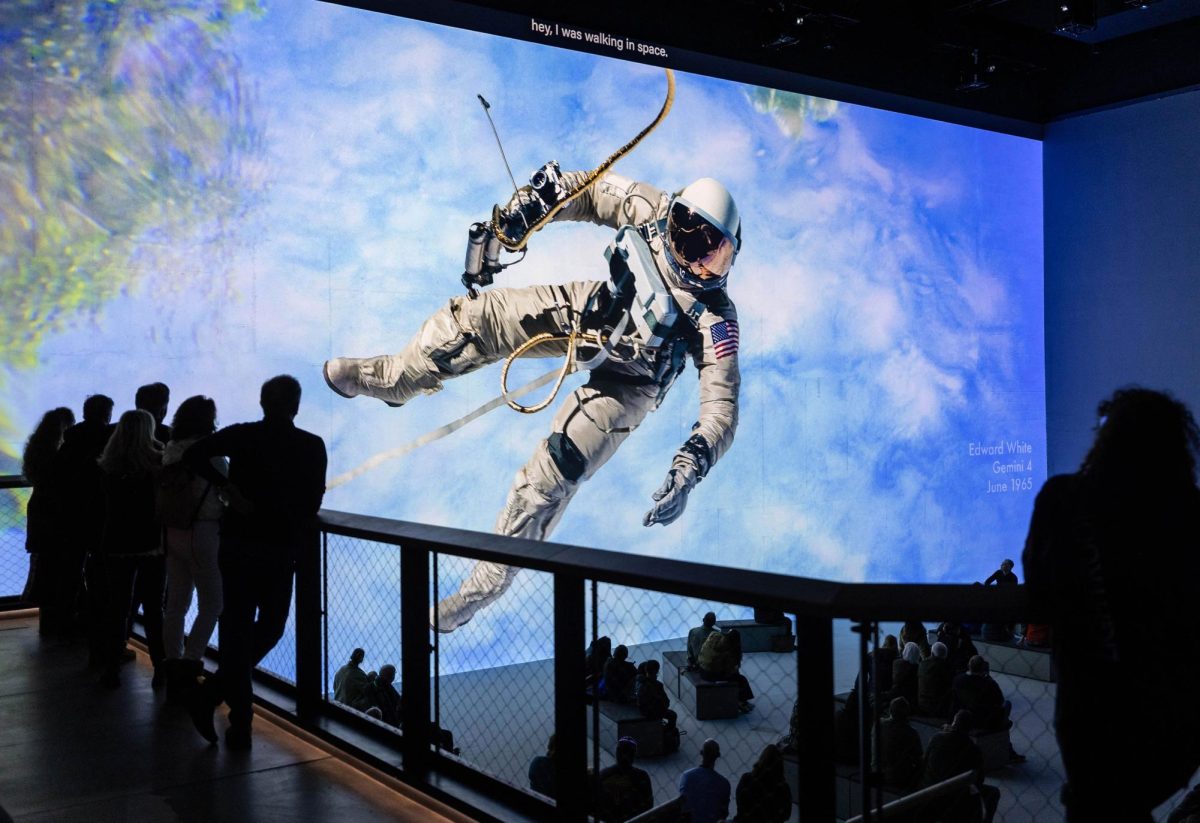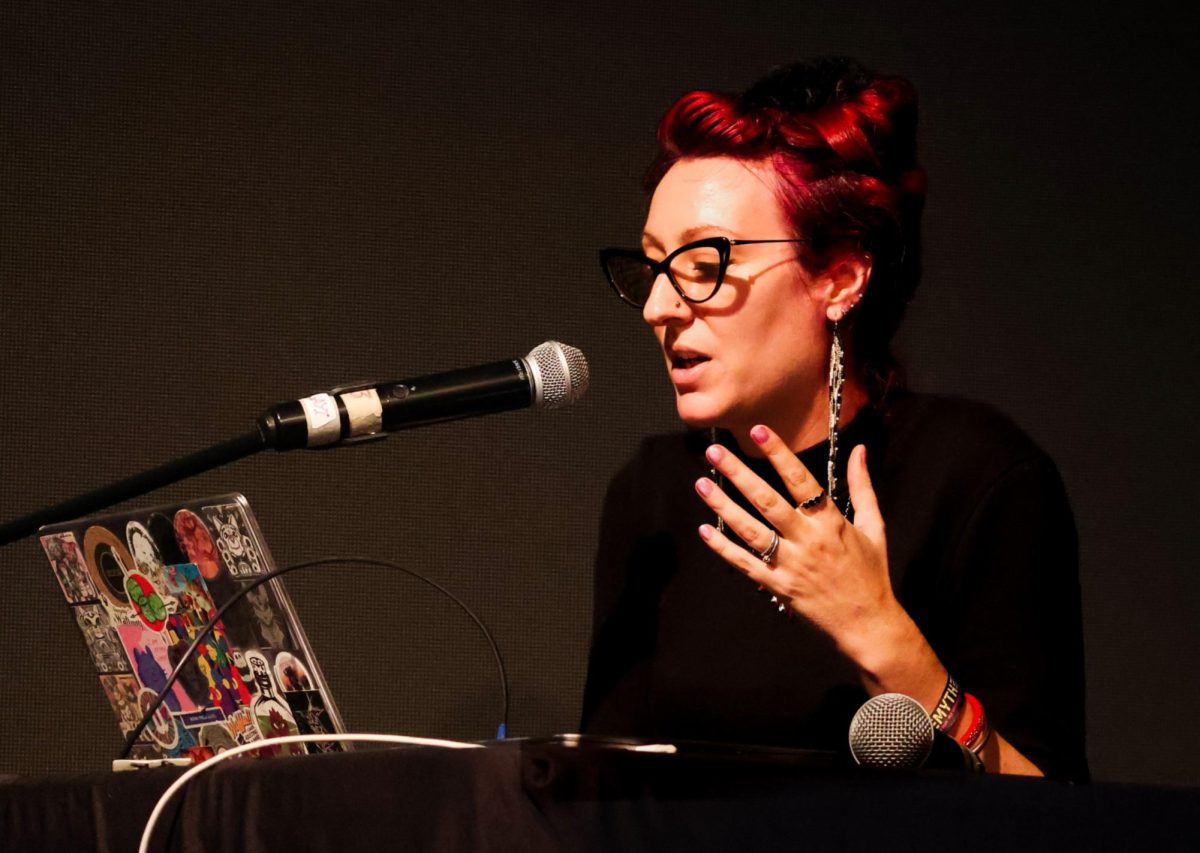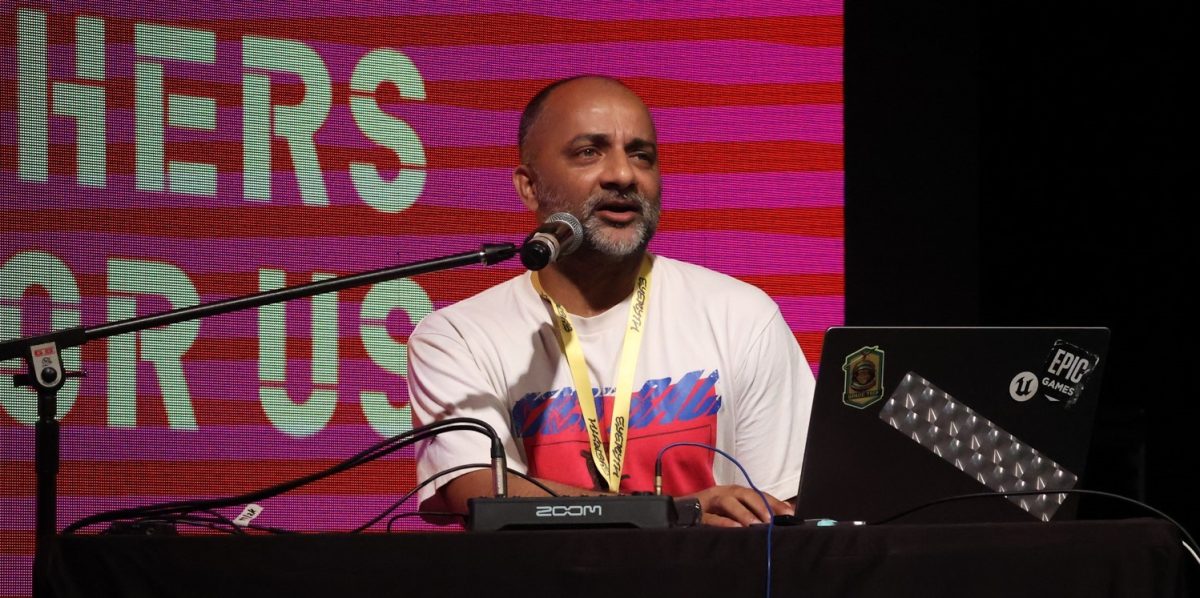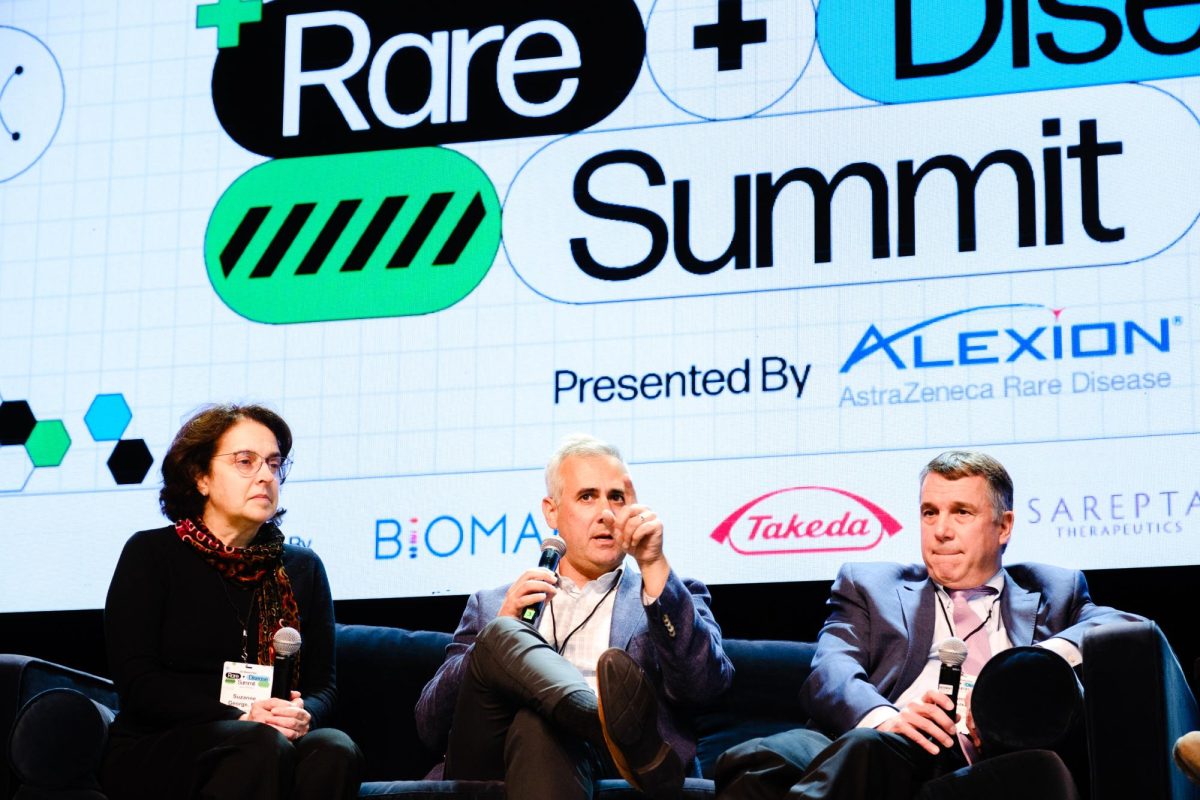“Ten, nine, eight.” The countdown began.
“Seven, six, five, four.” It continued, as many students got up to get a closer look at the images surrounding them on four walls and the floor.
“Three, two, one. Liftoff.”
The sound got louder, and the film focused on the bottom of the Apollo 11 spacecraft, as fire and fuel gushed out of it. Soon enough, the video of the liftoff was interrupted, as images of the celebrating crew, workers, and families from all around the world took over all four walls of the experience.
This summer, Saunders Castle is presenting “The Moonwalkers,” an immersive film narrated by Tom Hanks, which explores past space missions, primarily to the moon, and those to come next. The film, which is being shown until Aug. 31 during its North America debut, includes footage of the first moon landing, informational clips, and interviews with astronauts.
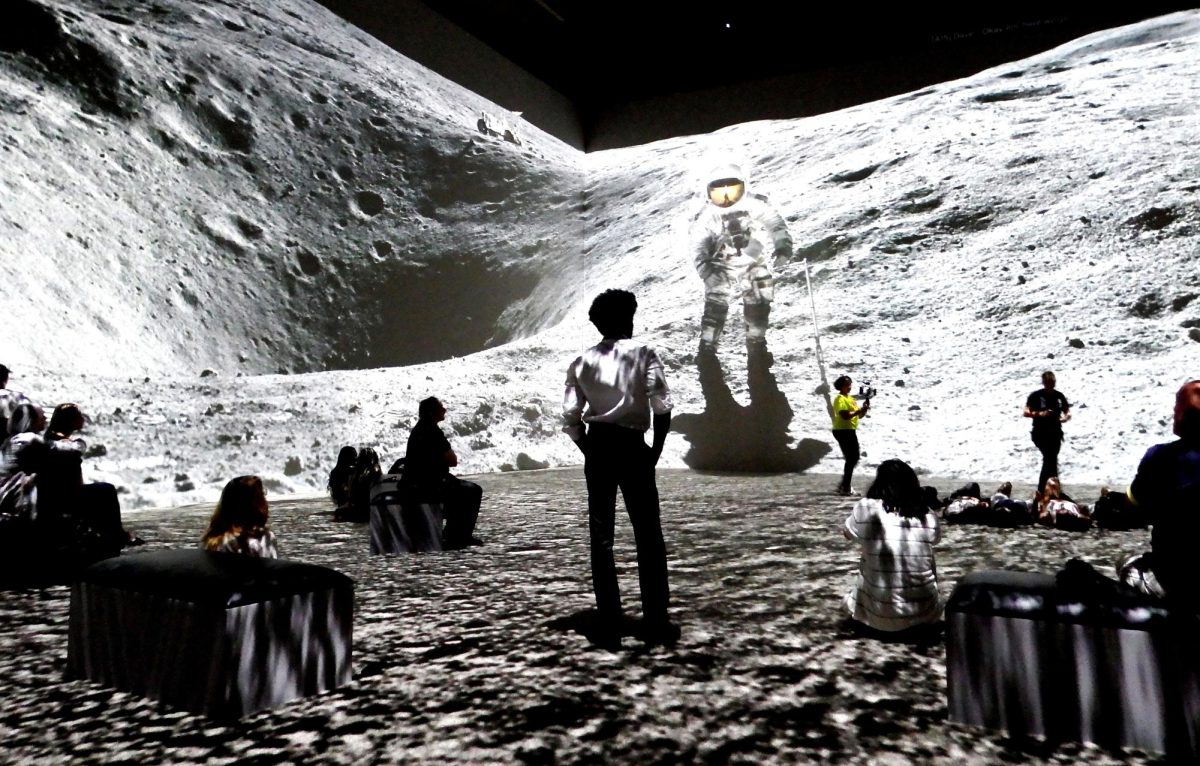
Astronaut Rodrigo Carvalho Santiago, the director of the National Manned Stratosphere Station Program (NMMS 1), was on hand at a showing July 18, after which he held a question-and-answer session with dozens of students from the Greater Boston area. The event, being immersive and interactive, allowed the students to come together and explore a well-known story in a unique way.
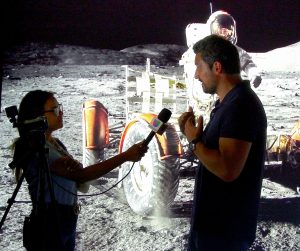
Santiago repeated throughout the Q&A that almost anyone could go into space exploration, and that there are many opportunities now that make space more accessible. Indeed, Santiago only started working in the domain of space exploration in his mid-40s. He was formerly a researcher and advisor for the Massachusetts Institute of Technology / Transiting Exoplanet Survey Satellite data analysis program at NASA Goddard Space Flight Center. Now he directs NMMS 1, involved in the construction and operation of a station that will carry out research and experiments near the lower mesosphere at the edge of space.
Part of the film touched on the uniting component of space exploration. Santiago emphasized how space issues concern all people, no matter the divisions.
“The Russians took American astronauts until [2019], because they didn’t have a rocket to go. But even with all the differences, all the unstable situations around the world, they had all this partnership, they have all of this collaboration,” Santiago said. “We have representatives from every country working in the space programs. The international collaboration is more guaranteed, more affordable.”
Santiago continued to emphasize the importance of shared boundaries within space exploration.
“The exploration, to [the] moon and other planets, is very expensive. So you need to be united: everyone, with all the resources, all the scientists, all the minds. And we need to do that for the good of mankind,” Santiago said. “We don’t need to [think], ‘Oh, we explore here, share the moon here, create a power plant to provide for one nation or a group of nations.’ No. I think everyone needs to be a united representative for every country, and go in to explore.”
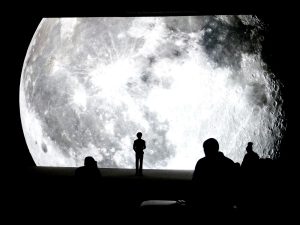
Students and educators with the After School Arts Program (ASAP) were in attendance. ASAP, created in 2020 by Toni Martin, partners with Boston Public Schools to combat isolation and the detrimental effects of COVID-19. After deciding to focus the summer program on journalism this year, they were given the opportunity to view “The Moonwalkers.”
Malcolm Cooke, who has been working with ASAP for three summers, stressed the importance of learning about the history of space exploration and why humans choose to explore space.
“I was born six months before Neil Armstrong landed on the moon, but these kids are 16, 15, 14, so they just don’t have as much of an understanding now that we’re in a new era of space exploration,” Cooke said. “It seems really important for all of us to learn why space exploration is important and what we could discover. More than anything, they get to see what human potential can do.”
Cooke found “The Moonwalkers” to be incredibly immersive as he was able to move around the theater as the film played.
“It’s very different from most cinema experiences, and the music is amazing. Tom Hanks is narrating, and you’ve got a dozen images coming at you at any time. The music is inspiring, so it’s just a great multimedia extravaganza.” Cooke said.
Seira Lee Jones, a student with ASAP, said she felt motivated to do something good after watching people in the film spend years trying to get to the moon.
“I always strive to do so many different things,” Jones said. “I personally want to be a director, but I’ve always wanted to do something bigger than me, so it inspired me to do a lot of research, do a lot of studying, do a lot of deep diving into things like the moon, knowing someone could do this.”
Jones also shared how the immersive experience broadened her interest in astronomy.
“I always loved [astronomy],” Jones said. “And then, seeing this now and seeing the moon and all the stars, that just inspired me to look deeper into it and like the history behind it, you know?”
(For tickets, times, and more information, visit www.lightroomexperiences.com.)
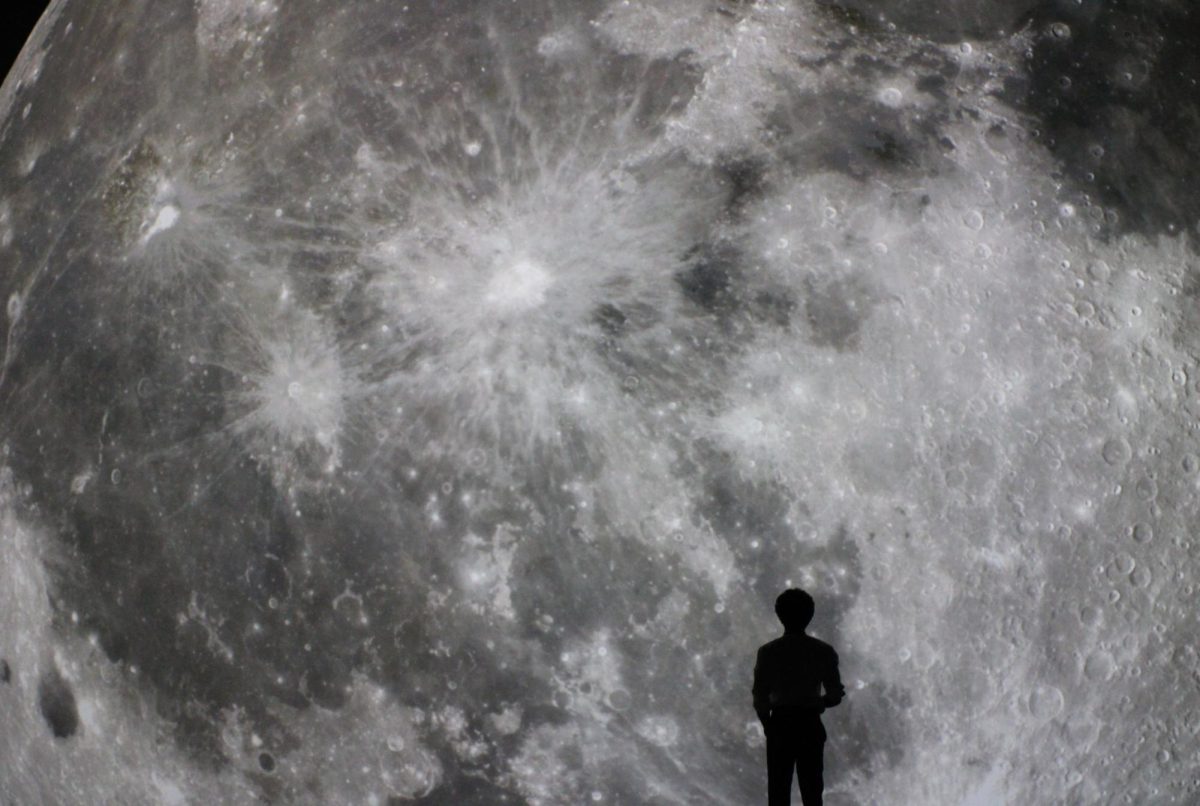
–July 27, 2025–

